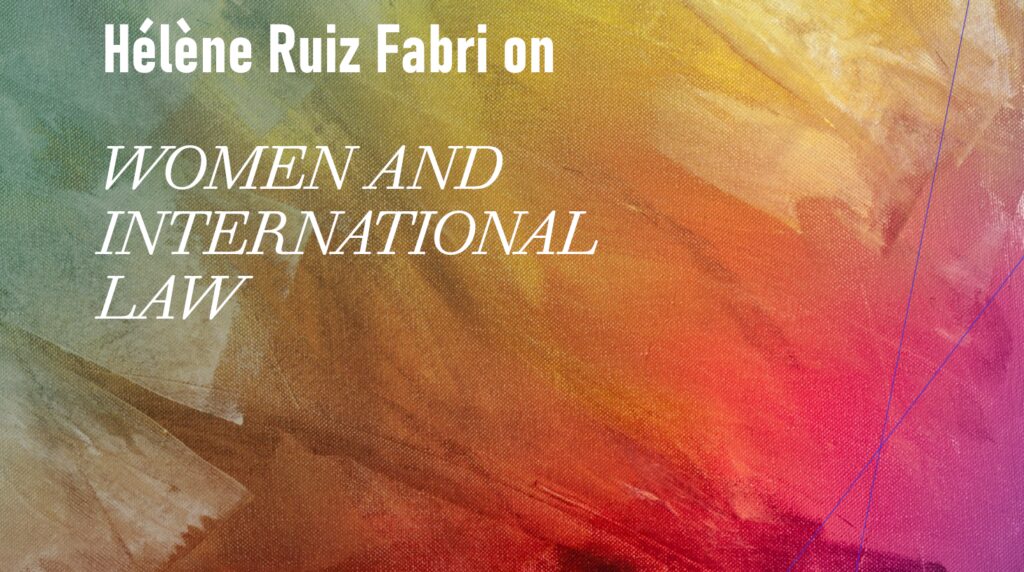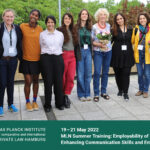Virtual lecture
Thurs 29 April 2021 11-13:00 CEST

Hélène Ruiz Fabri is Director of the Max Planck Institute Luxembourg for Procedural Law, where she heads the Department of International Law and Dispute Resolution. Before coming to the Max Planck Institute Luxembourg, Hélène Ruiz Fabri was a Professor at the Sorbonne Law School (University Paris 1 Panthéon-Sorbonne), of which she was Dean for four years. She holds a Doctorate in International Law and a Post-Graduate (Master 2) degree in Political Science. She is currently a member of the Ethics Council of the French Ministry of Research and Higher Education and has worked extensively on deontological issues. She also has experience in legal practice, especially advising various organizations on human rights or cultural diversity and acting as a judge or an arbitrator.
Professor Ruiz Fabri has worked extensively on Women in International Law/Women and International Law, especially on the implementation of the Convention on the Elimination of All Forms of Discrimination Against Women (CEDAW) and on feminist perspectives or approaches to international economic law and international arbitration. She is currently co-editing the Oxford Handbook on Women and International Law, together with Nienke Grossman, Jaya Ramji-Nogales and Beth Van Schaack.
This talk will focus on women and international law. International Law incorporates concerns relating to women, whether to combat discrimination of which they are victims or to promote them as actors. It raises the issue of the interest and validity of an approach based on specificity and the identification of this specificity. A good example is gender balance in international adjudication. It also leads to consider the existence of feminist approaches regarding international law. Indeed, Hillary Charlesworth, Christine Chinkin, and Shelley Wright’s ground-breaking “Feminist Approaches to International Law” (published in the American Journal of International Law in 1991) already acknowledged the diversity of feminist approaches, all critical, but more or less radical. Therefore this raises the issue of the interest and validity of gendered approaches.









